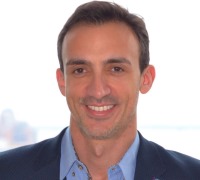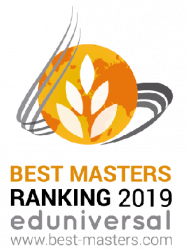Mr. Bozidar Jovicevic , Vice President, Global Head Digital Medicines of Sanofi and i-MBA alumnus (2006 graduate), replies to the questions posed by Ms. Ioanna Tranou, Career Development Manager, MBA International Program, providing useful career advice and sharing insights on the current trends and future developments in the pharmaceuticals sector.
, Vice President, Global Head Digital Medicines of Sanofi and i-MBA alumnus (2006 graduate), replies to the questions posed by Ms. Ioanna Tranou, Career Development Manager, MBA International Program, providing useful career advice and sharing insights on the current trends and future developments in the pharmaceuticals sector.
Career- iMBA
Can you briefly describe your role within Sanofi? What do you consider the most challenging aspect of your job as Vice President, Global Head Digital Medicines?
In this position and role, I drive what we call “Drugs+” initiatives. Drugs+ are typically non-pharmacological solutions (typically technology or coaching) that can help improve patients’ health. The whole idea is that for many patients, a pill/drug is not enough and that there is so much more that can be done through educating patients about their disease, about products they are using or how they can monitoring their disease through use of technology, so that they can play a much more active role in managing their overall health.
What are the most valuable skills that you took from your education at MBA International and you feel are important to be successful in your current position?
I learned the language of business as well as various frameworks and methodologies, and got more confident with problem-solving in the broad arena of business. Prior to the MBA, I had an MD degree but decided not to pursue a classical physician career as working with patients in clinical settings simply wasn’t the right fit for me.
How have mentor relationships contributed to your career choices and progress?
Mentors have always played a huge role in my career. Over the last 10 years I’ve always had one or two mentors that I’d regularly see. Mentors can help in many ways to accelerate your career but most importantly they can help you become a better person. For example, one of my mentors influenced me to start exercising regularly even though our mentoring relationship was really about business topics. Another mentor influenced me to change my career trajectory and move from classical marketing role into a more tech-oriented business role within life-sciences industry. The challenge that most people face when it comes to mentoring is that– they either don’t have a mentor even though they know they should have one, or they have a mentor but do not follow up and report the results from implementing what they learned from the mentoring activities. Key to both of these challenges is to understand that there is nothing more rewarding for an accomplished person/mentor than a mentee who follows up and reports results.
What advice can you give to a young person who may want to cultivate an early passion into a potential career?
Don’t focus on intellectualizing your way into a passion-driven career, but rather try a lot of things and move towards the areas that feel good to you. A lot of people are sold on this concept of finding their passion first. As much as it sounds great, it can’t be done in a linear way. For this reason, I always recommend to young people not to think about their future based on what they’ve done in the past, but rather optimize their early career for learning – work for amazing leaders, amazing companies, start their own companies, change jobs every year (including internal shifts of course) and most importantly, observe what they like and don’t like as opposed to falling in love with societal symbols of success. In other words, give them a permission to try things and choose what they want. Paradoxically enough, those who follow their gut feeling and not societal symbols of success end up being the most successful.
What was your most memorable moment during your studies at MBA International?
Hard to say as it was a great experience on overall, but I’d say first classes of Entrepreneurship. There was something magical in the way that our professor at the time (Prof. Schwartz) introduced that topic and taught us the real life examples of being an entrepreneur. That class inspired me to start three companies later on and take a role of an intrapreneur when working in large companies.
 Sector
Sector
What will be the most important industry development or innovation in 2017?
That’s hard to say, but I think that the whole healthcare sector will be massively disrupted by the entrance of small and large technology players over the next 5-10 years as well as advances in certain areas such as genomics and artificial intelligence. That means that the value created along the healthcare sector will shift and get redistributed. For example, the role of a doctor will change to a more consulting one as machines will be able to diagnose and treat better than doctors. In addition to that, patients will play a much more active role managing their health while data will be at the core of decision making. As for pharma industry, advances in science will enable faster drug discovery, and, if coupled with changes in regulatory environment, faster drug development as well.
Governments are beginning to focus on prevention rather than treatment. How do you think that this will affect the healthcare/ pharmaceutical sector?
Prevention is undoubtedly an important area and will also be massively powered by data and technology. For example, 90%+ of cancers can be cured, and I repeat cured, through early diagnosis. So what if we had smart nanotechnology that would monitor our health 24/7 in the same way that we get continuous info about how our car performs? These kinds of “Star Trek” devices will be available in 5-10 years.
However, I believe that limitations in human behavior and habit change will be the main reason for slower adoption of these technologies. The reason is that our brain hasn’t changed much over the last two million years – it’s wired for survival and it’s highly resistant to change and more specifically, habit-change. For example, five chronic diseases account for 86% of healthcare spent in US (we are talking trillions of dollars) and all five are highly modifiable (for the lack of a better term) through change of lifestyle (in other words, diet, exercises, smoking cessation)…and yet, overall population prefers to continue the same lifestyle and pay the price of inferior health.
Company
How will you change your corporate culture to address the challenges of the twenty-first century and foster innovation?
Pharma and healthcare sector has traditionally been slow, highly regulated and fragmented and it will have to become more nimble and entrepreneurial. That is not an easy task but it is inevitable as the ones who don’t adapt will be out of the market fast (Fortune 500 list is becoming more and more dynamic every year).
Sanofi’s industrial presence is all over the globe, in more than 40 countries. What strategy of networking do you implement to ensure high-quality services in every region?
Sanofi has one of the largest footprints of all Fortune 500 companies, it is present in 160 countries and 1/3 of sales come from emerging marketing. On top of this, Sanofi has 3000+ products in its portfolio. Key to being successful in many of the markets worldwide has to do with having tailored approaches in each of the markets, adjusting to their needs and current political and economic environment. For example, Sanofi has been incredibly successful throughout the world with its vaccines portfolio, enabling eradication of many diseases and adapting its vaccines offerings to each of the country’s needs.
A few words about Mr Bozidar Jovicevic
Bozidar is a healthcare executive with passion for innovation, technology and human behavior. He joined Sanofi, NY in May 2017. Prior to that, he had an extensive career in Novartis Serbia, Greece, Switzerland and US in various roles including Senior Global Product Director and Global Digital Head of Medical Affairs.
He holds a medical degree from Belgrade University School of Medicine and an MBA International degree from Athens University of Economics & Business (AUEB).















